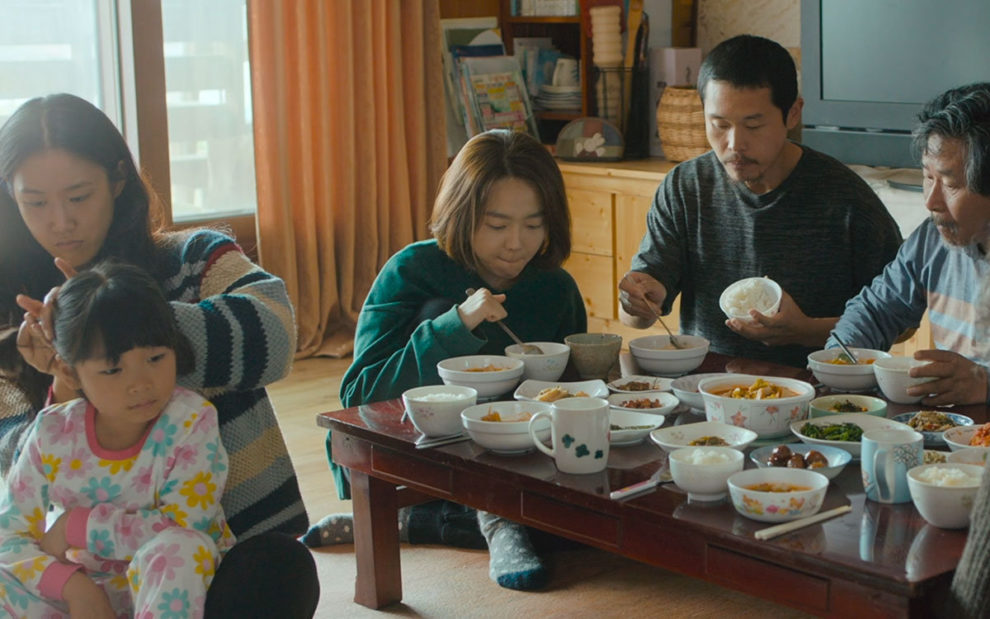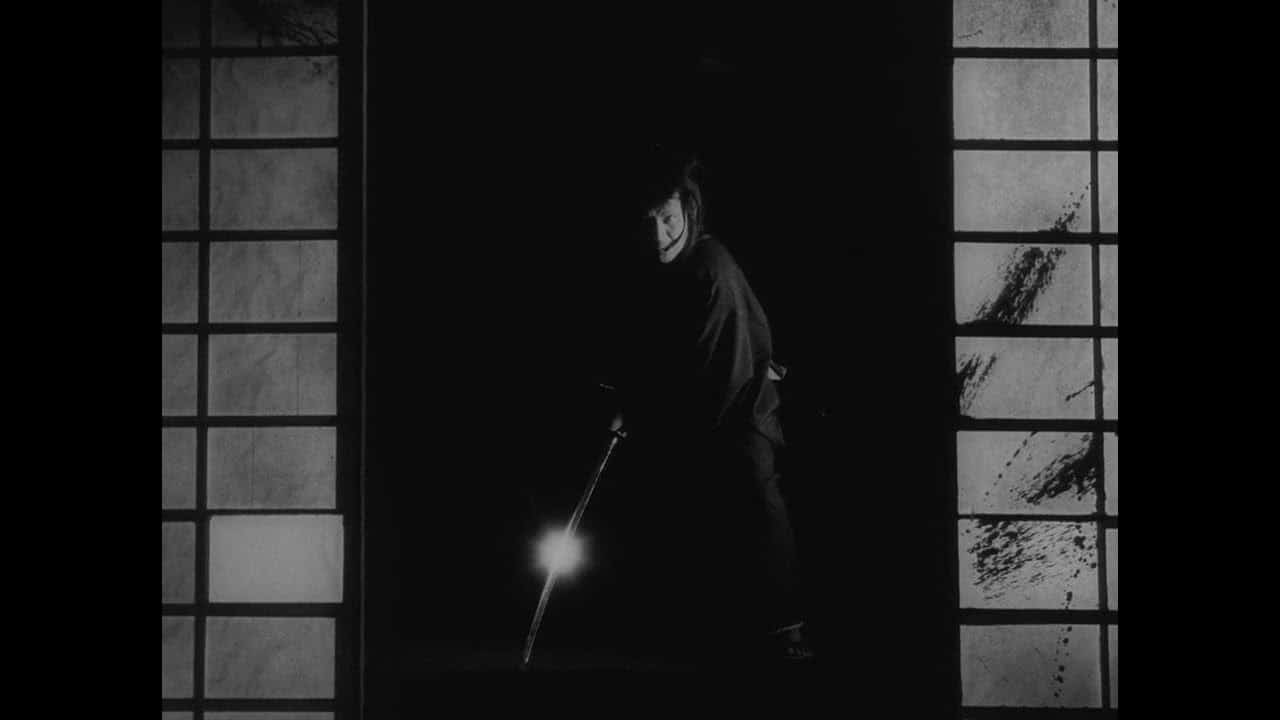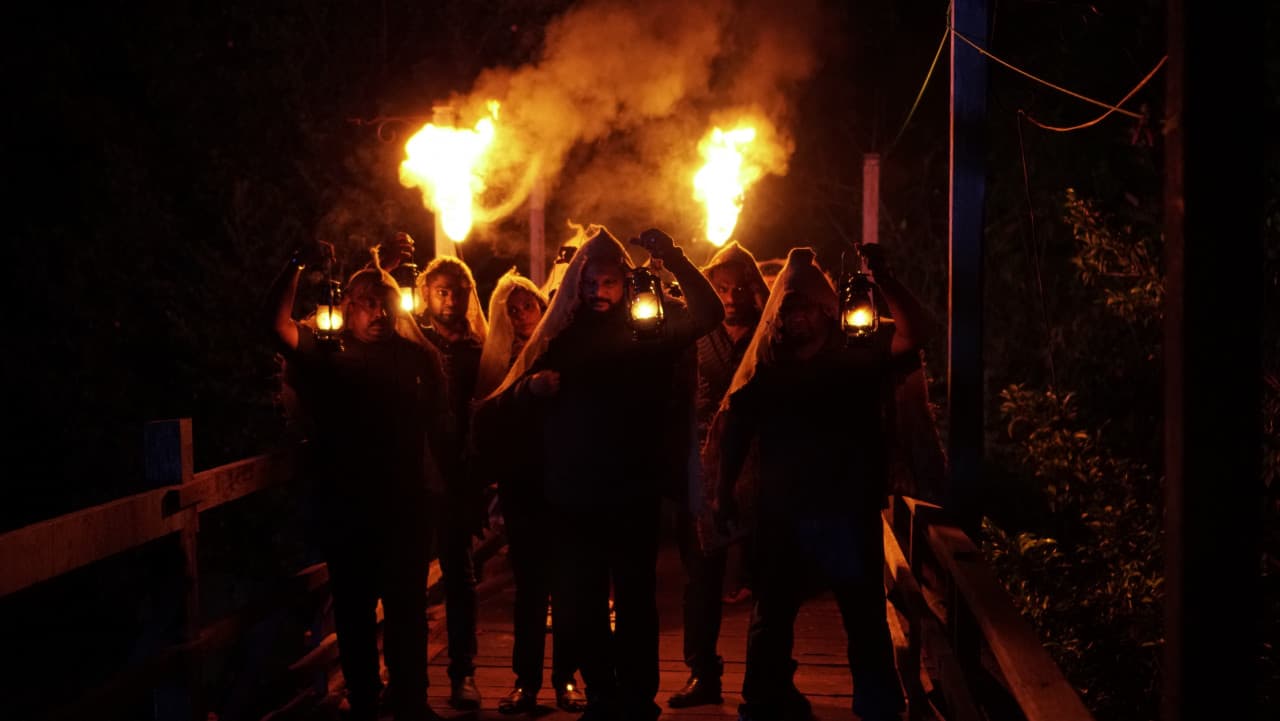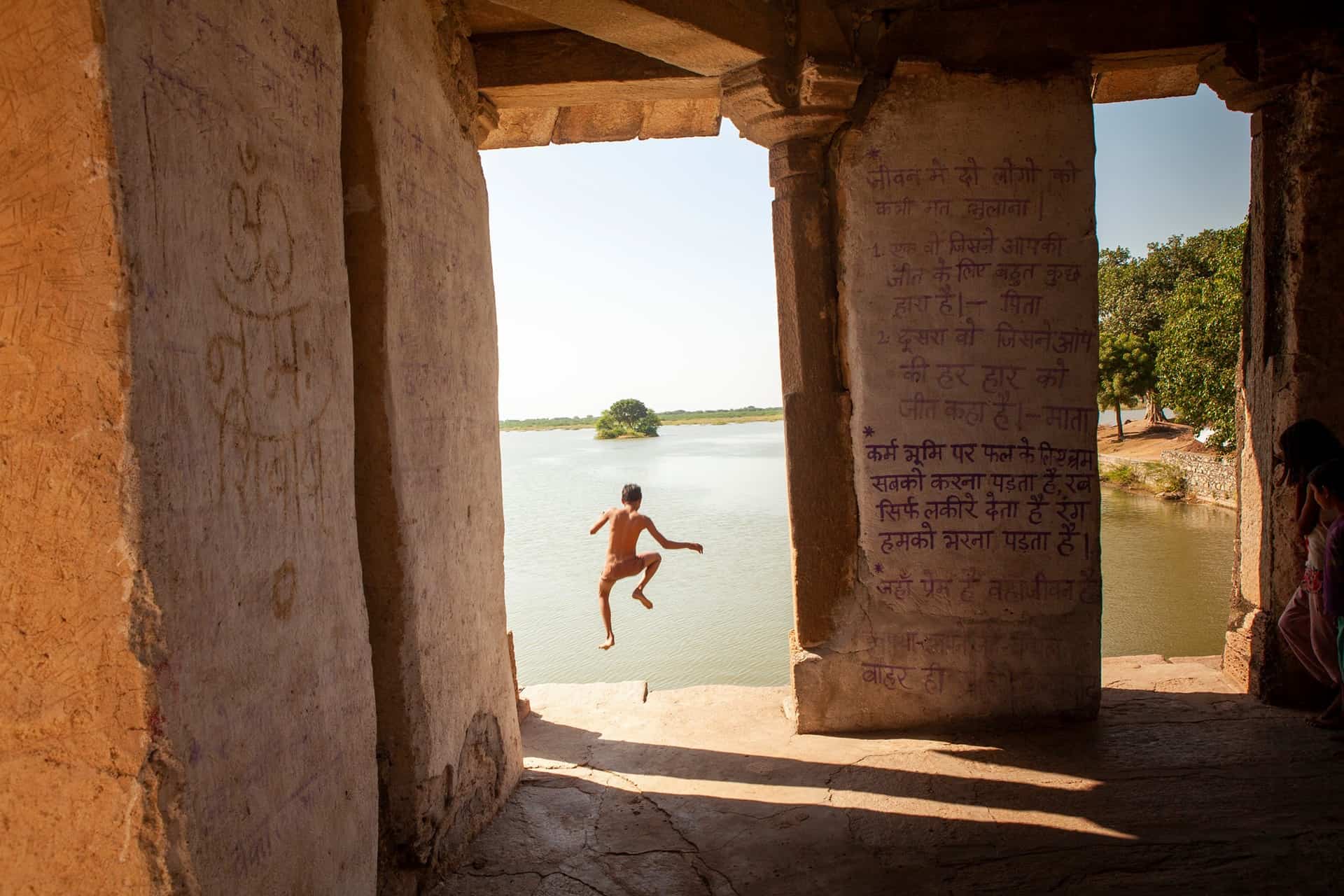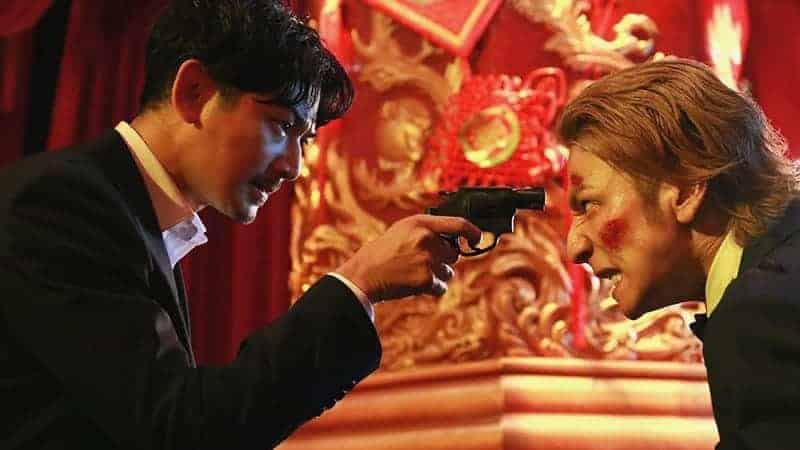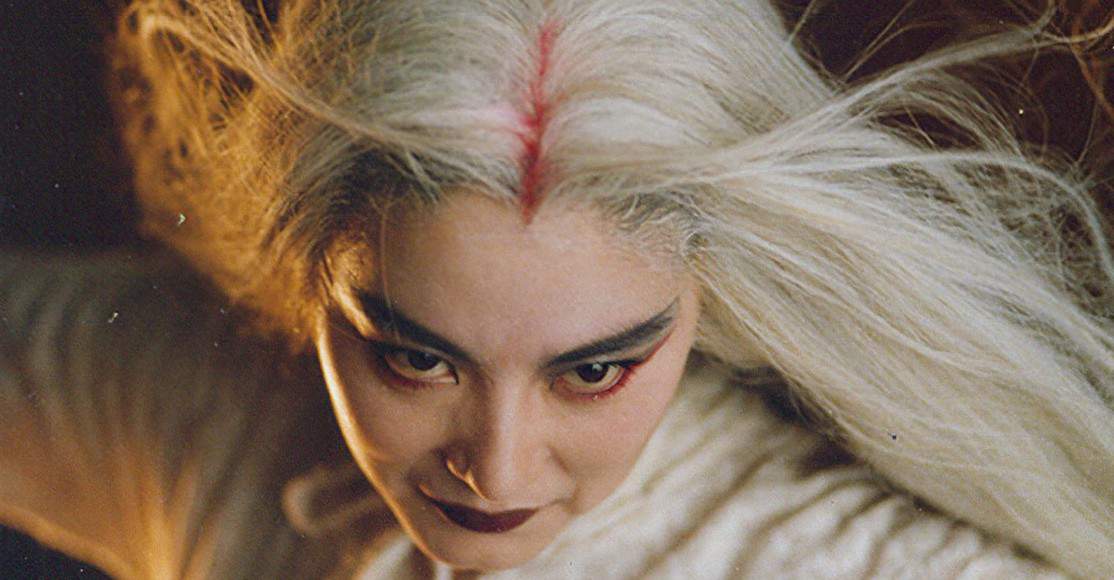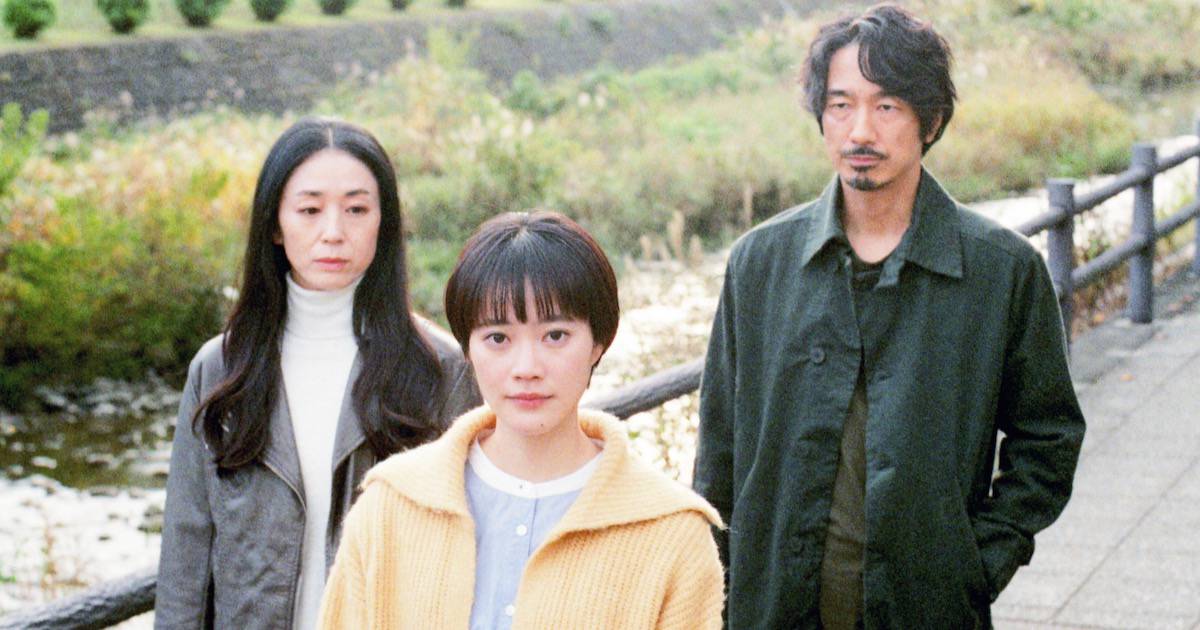Leaving the city for rural areas has been a recent trend for many, from youthful hipsters to superstars who decide to withdraw at some farm away from the noise and the crowds of the city. For the rich, this life occasionally can work out quite nicely, but the majority of people who also have to make a living by working in some farm find it rather difficult, and also have to face a number of social issues that derive from the mentality of the small, secluded communities, whose people are rarely open minded, to say the least. Park Kun-young presents such a story, implementing a number of twists that also comment on the concept of family.
“A Distant Place” screened at the Florence Korea Film Fest

Jin-woo has been living and working on a sheep ranch in Hwacheon, Gangwon-do, along with his baby daughter, Seol. The owner, Joong-man, and his daughter, Moon-kyeong treat them like family, with them returning the attitude to include Myeong-soon, the latter's grandmother. Moon-kyeong seems to like their lodger, but he barely seems to notice. The reason is revealed when a friend from the city, Hyeon-min, who has been invited by the local church to give some lectures on poetry, also comes to stay in the farm, with the relationship the two men used to share becoming rather evident after a fashion. Hyeon-min wants to be properly together with Jin-woo, but he is reluctant to reveal their status to his employees, who, eventually, however, realize what is going on. Furthermore, the unexpected visit of Eun-yeong, Jin-woo's estranged twin sister who is eventually revealed as having a personal, lamenting agenda for Seol, complicates things even more, while the small-mindedness of the small community eventually comes to the fore.
Park Kun-young directs a film that focuses on Jin-woo and the complexity of his life, which is intensified by the fact that he has chosen to live and raise Seoul in a remote area. Through his life and the way it unfolds when his past come knocking the door, essentially destroying the harmony he has been experiencing, he manages to present a number of eloquent comments. That people in small societies seem kind-hearted but can be intensely racist is one of the most evident, although the attitude of Joong-man and his daughter also highlights the fact that not everyone shares the same mentality.

The second and most central aspect is the concept of familial ties and what constitutes them, with the relationships in the film and particularly of Eun-young with Jin-woo and Seol, showing that blood is not the main element in this case. On the other hand, the understanding, subtlety, caring, and easy-to-welcome total strangers attitude Joong-man and Moon-kyeong show and also get in reverse by their two “guests” are depicted as the elements that actually constitute a family.
At the same time, however, that Jin-woo's reasons for leaving the city are not mentioned in the film, apart from a brief mention of wishing to go away from the crowds, somewhat fault the characterization and essentially, the whole narrative.
Apart from the comments though, Park's story also is meaty enough to retain interest, even including some genre elements, which are, though, presented through an indie drama prism. The disappearance of the grandmother and the ripples her fate sends on all the protagonists, and subsequently, the disappearance of Seol, induce the narrative with a sense of agony that is quite entertaining, and contextually significant due to the repercussions of the two events. The subtle silences and the things unsaid that dominate the character approach here find some welcome relief in these two sequences, something that should also be attributed to Park's very fitting editing.
Probably the best aspect of the film, however, is the cinematography, with the images of the autumn and winter in the fields and the forest being truly exquisite, intensified by the excellent use of color. These sequences , which simply highlight the setting, are among the most memorable in the movie, in another relief from the low-key directorial approach. Particularly the one close to the ending will stay on the mind of the viewer long after the movie has ended.
Kang Gil-woo as Jin-woo embodies the overall aesthetics of the movie to the fullest, with his silences and intense looks or subtle smiles speaking volumes, without him having to utter even a word on occasion. The scene in the restaurant with the soldiers in particular is a highlight of his performance, despite that the cut here is a bit abrupt. Lee Sang-hee as Eun-yeong is also very convincing as the desperate, occasionally awful sister, while Kim Si-ha as Seol and Choi Geum-soon as Myeong-soon have a number of moments where they steal the show completely.
“A Distant Place” has some issues with the writing and characterization, and on occasion, the solutions Park has picked seem somewhat too easy. However, the comments about rural life, discrimination and family are well communicated, while visually the film is stunning, with these two aspects essentially elevating it beyond the plethora of similar indie films.


